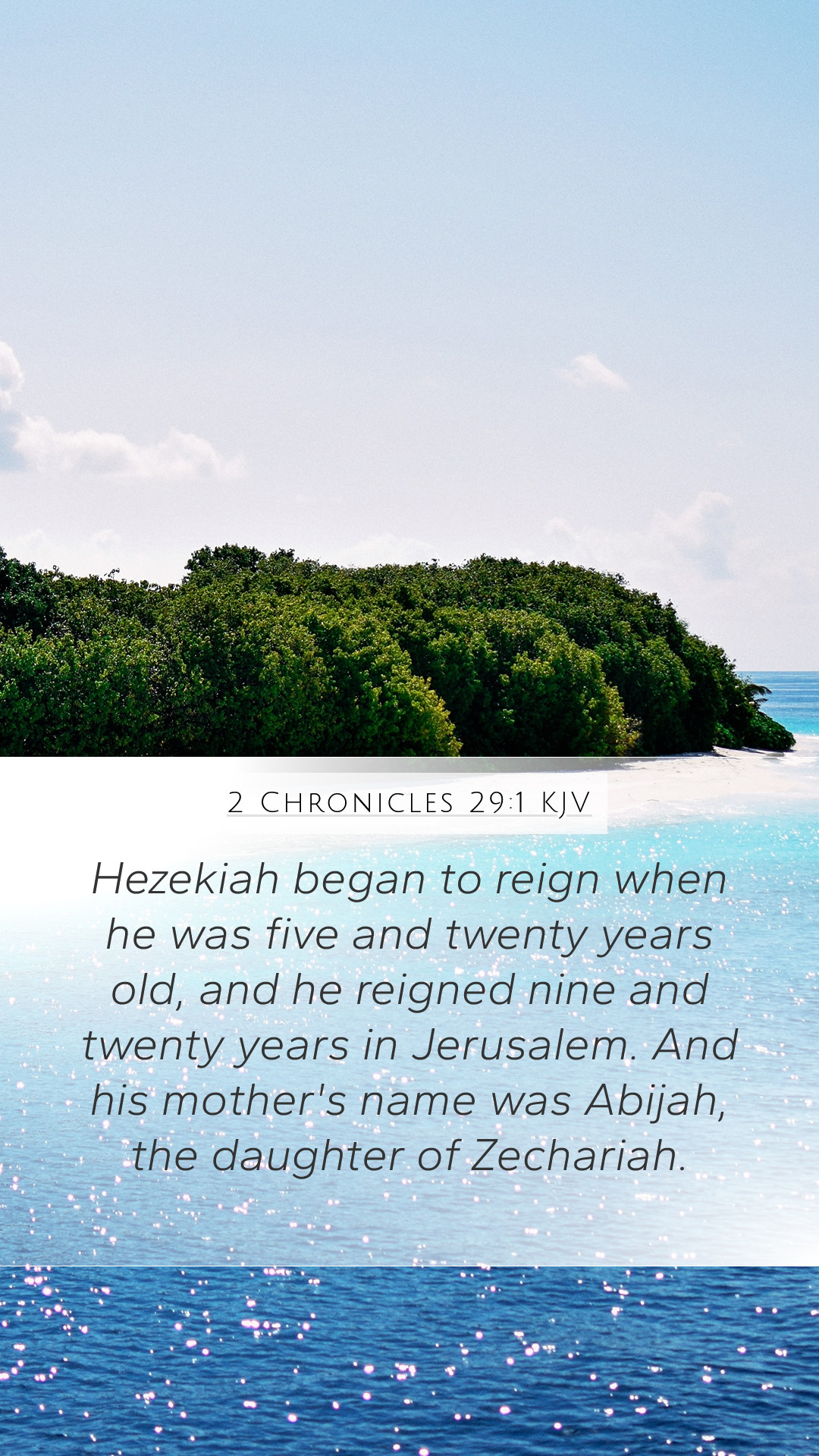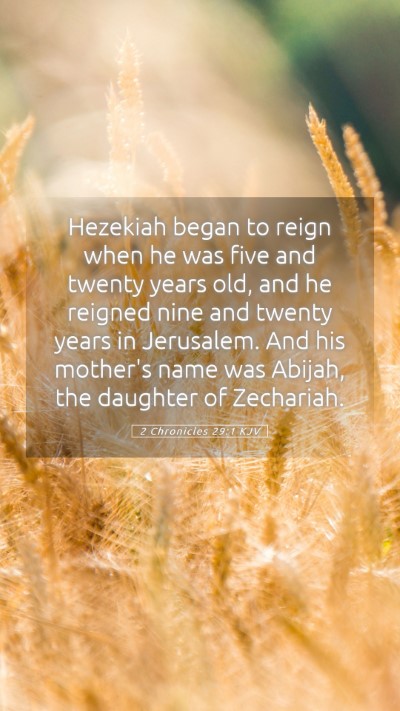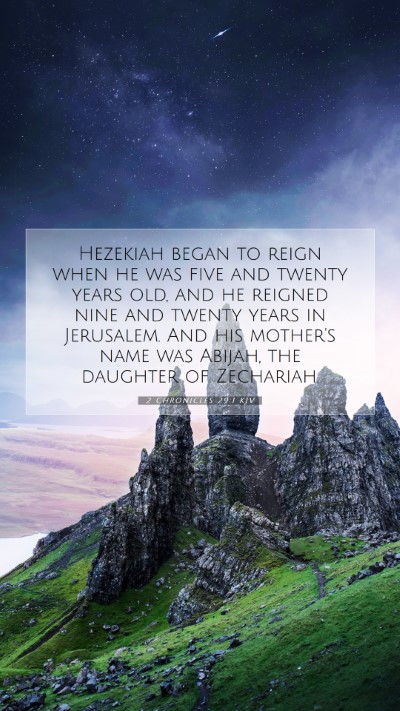Understanding 2 Chronicles 29:1
2 Chronicles 29:1 states: "Hezekiah began to reign when he was five and twenty years old, and he reigned nine and twenty years in Jerusalem. And his mother’s name was Abijah, the daughter of Zechariah."
Overview of 2 Chronicles 29:1
This verse introduces King Hezekiah, establishing important details about his age, his reign, and his family's background. Understanding the significance of Hezekiah's reign is crucial for grasping the spiritual and historical context of Judah during a turbulent time.
Contextual Significance
Hezekiah's ascension to the throne comes after a period of idolatry and spiritual decline in Judah. His age of 25 suggests a young, yet potentially decisive leader at a time of great religious need. This verse serves as a foundation for the subsequent reforms Hezekiah would initiate, emphasizing the importance of restoring proper worship in Jerusalem.
Biblical Exegesis
- Age and Leadership: At 25, Hezekiah is seen as a young king who faces significant challenges, yet indicates potential for leadership and revitalization.
- Duration of Reign: Reigning for 29 years indicates stability that would allow for enduring reform and revival in worship practices.
- Maternal Influence: Mentioning his mother’s name, Abijah, reflects the importance of heritage and familial influence on Hezekiah's faith journey and leadership style.
Insights from Commentaries
This section aggregates insights from notable public domain commentaries to provide a comprehensive understanding of the verse.
Matthew Henry's Commentary
Henry notes that Hezekiah's ascension is noteworthy due to the generational gap from the preceding kings, implying a potential for fresh perspectives and a return to covenant fidelity. His age indicates vigor and the ability to implement significant reforms. Henry highlights Hezekiah’s immediate challenges, including the influence of idolatrous practices inherited from previous rulers.
Albert Barnes' Notes
Barnes points to Hezekiah as a contrast to his father, Ahaz, emphasizing the immediate need for restoration and revival in the temple services. He underscores the significance of Hezekiah’s lineage and maternal encouragement, suggesting that these familial ties may have influenced his dedication to God.
Adam Clarke's Commentary
Clarke elaborates on Hezekiah’s age, suggesting that being relatively young could be advantageous, as he may not yet have been entrenched in the idolatrous ways of his forefathers. He also considers the socio-political atmosphere of Judah, which heavily influences Hezekiah’s approach to governance and worship reforms.
Applications and Reflections
Understanding this verse allows readers to reflect on the themes of leadership, generational change, and the potential for reform in even the most adverse circumstances. Hezekiah’s story encourages believers, particularly in Bible study groups and online Bible study contexts, to consider their own roles in promoting spiritual vitality within their communities.
Cross References
- 2 Kings 18:1-7: Additional account of Hezekiah's early reign and reforms.
- Isaiah 36-39: Prophecies and events during Hezekiah’s reign.
- 2 Chronicles 30: Hezekiah’s observance of Passover and call for national repentance.
Conclusion
In summary, 2 Chronicles 29:1 provides critical context for understanding King Hezekiah's reign, shedding light on his youthful leadership and necessary reforms in Judah. The verse is a reminder of the importance of spiritual renewal and the impact of a leader’s commitment to God on a nation’s direction. Delving into the meanings and implications of such verses enriches Bible study insights and offers a deeper understanding of Scripture.


